Electrifying Communities, Empowering Livelihoods
How RMI is touching lives using clean energy in Nigeria.
In 2015, if someone had told Alheji Gembo that he would experience up to 20 hours of electricity and expand his cold drink business from one freezer to four, he would have doubted it. Back then, he was dependent on the local grid. Across Nigeria, because the conventional power supply is intermittent, small business owners like Gembo couldn’t dream of scaling especially when their business is electricity dependent. Instead, they pack up out of frustration.
For Gembo, this meant that the grid in Zawaciki, his settlement in Kano state, barely saw up to four hours of power per day. This is the case with many other residents in Nigeria — a country where over 85 million people lack access to sustainable and affordable electricity.
“We suffered in our work given the quality of the light [power],” says Gembo, who runs his business out of his home. The situation was so bad that the community could go up to two days without power.
But the narrative has changed. Installed in January 2024, a new 1-megawatt (MW) solar hybrid minigrid is ensuring that Zawaciki’s 1,000 homes receive 16 to 20 hours of power a day. The steadier power has spurred economic growth across the region.
RMI — The game changer
Gembo’s story sits at the heart of a goal that RMI set out to achieve when the institute arrived in Nigeria in 2017.
“When [RMI] started working in the country, we found that a huge number of people lacked access to electricity, many in agricultural and rural communities,” said Suleiman Babamanu, RMI’s program director in Nigeria. And so RMI rolled up its sleeves and got to work. The aim was to assist the government of Nigeria to increase access to energy by designing sustainable, decentralized energy solutions such as minigrids.
According to Babamanu, key questions informed RMI’s work in the country: “What is the best business model that can work? Who are the right partners to work with? How do you structure a financing mechanism? How do you carry out the right type of study? What do you want to look for when you are designing a minigrid in a particular community?”
With these questions in mind, RMI collaborated with key stakeholders — such as regional electricity distribution companies, project developers, and regulators — to develop business models suitable for existing regulatory frameworks. One of these is the interconnected minigrid currently serving Gembo and the larger Zawaciki community.
The interconnected minigrid includes mix of energy sources such as solar panels, battery energy storage, and a backup generator. It is connected to the distribution network and can draw in electricity from the regional distribution company when needed.
With RMI as the enabler, the model brings together distribution companies, private developers, and the community. The goal? To supply power to rural, semi-urban, or even urban communities that are already connected to the conventional power grid but that have unreliable electricity.
Besides Zawaciki, this model is operating in two other locations — Wuse market in Abuja, and Toto community in Nasarawa — that combined are generating over 1.3 MW of electricity and serving over 4,000 homes and businesses.
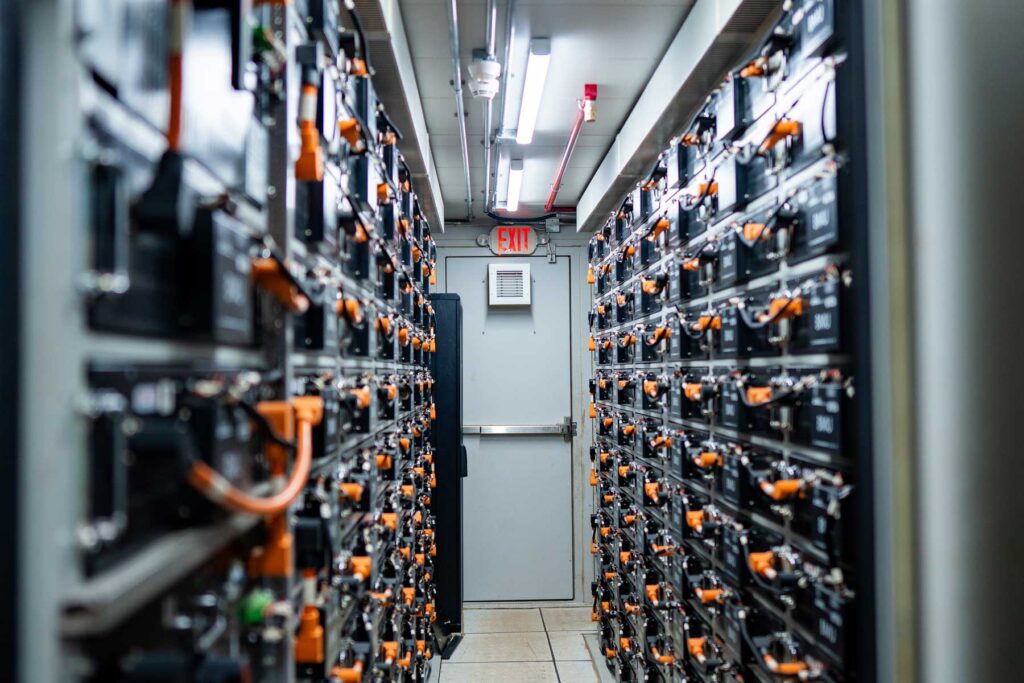
Sharing the power and the benefits
Another minigrid model is operating in Mokoloki town in Ogun state. In Mokoloki, where Chief Alhaja Akamo has operated her shop selling snacks, ice, cold water, and sodas for 40 years, intermittent electricity access and poor voltage quality was a big challenge.
This situation, she said, frustrated her out of business.
But with the construction of a solar and battery-powered undergrid minigrid, her craft has been restored.
From one freezer initially to now operating five freezers, Akamo said she now spends “the night at the shop making sales all night long.” A development she applauds as “so good” that she had to “turn off the freezers when things got too frozen.”
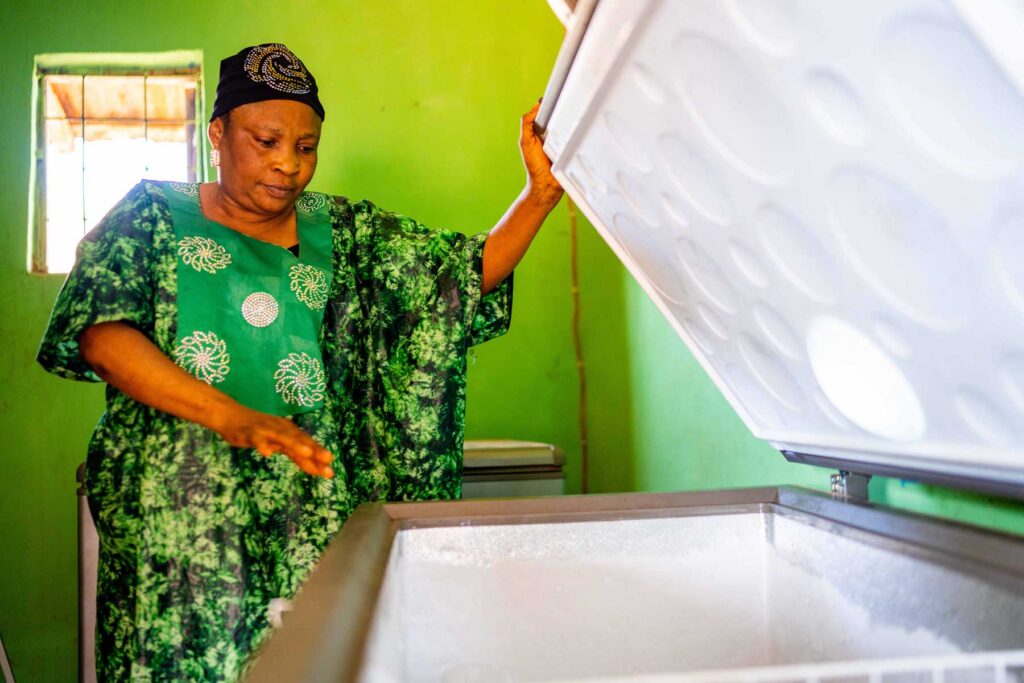
While there are many people like Akamo who are enjoying the electricity supply, the benefits go beyond directly powering homes and businesses. Residents also partially co-own the facility. The community-centric strategy at play in Mokoloki — called “Sharing the Power” by RMI — also allows the community to own a stake in the minigrid and be part of the governing council, says RMI Associate Ridwan Zubair.
That way, the community is able to take part in decision-making, have more women representatives in the decision-making body, and above all, participate in a benefit-sharing mechanism that allows the community to invest some percentage of the revenues from energy sales into community development projects.
To make contributing easier for the community members, they were encouraged to donate things like land, labor, and security service that then goes into the balance sheet of the project in monetary percentage. “If the land cost would have been 5 percent, we would have it on record that the community contributed 5 percent to the project,” Zubair said.
This first-of-its-kind project — which is currently being implemented in about four Nigerian communities including Mokoloki — will help these communities drive their own development. They can decide to use the revenues to build a healthcare facility or schools, install street lights, or address other developmental needs, Zubair added.
RMI Manager Zihe Meng describes this approach as “allowing the community to take more of a driver’s seat — having a say on what their own energy access and energy future should look like.”
Phasing-out diesel generators
In 2023, Nigerians spent N16.5 trillion ($25.8 billion) on the purchase of diesel, petrol, and generators for their own electricity generation. This reliance on diesel generators places a heavy economic burden on individuals and businesses.
However, a remedy is in sight. Through the continued deployment of renewable energy in Nigerian communities, RMI hopes to achieve the phase-out of diesel generators. And Zubair said it is working because “once we arrive in a community, our immediate goal is, when we go live [with installed solar power], we don’t want to see — or hear — those generators again.”
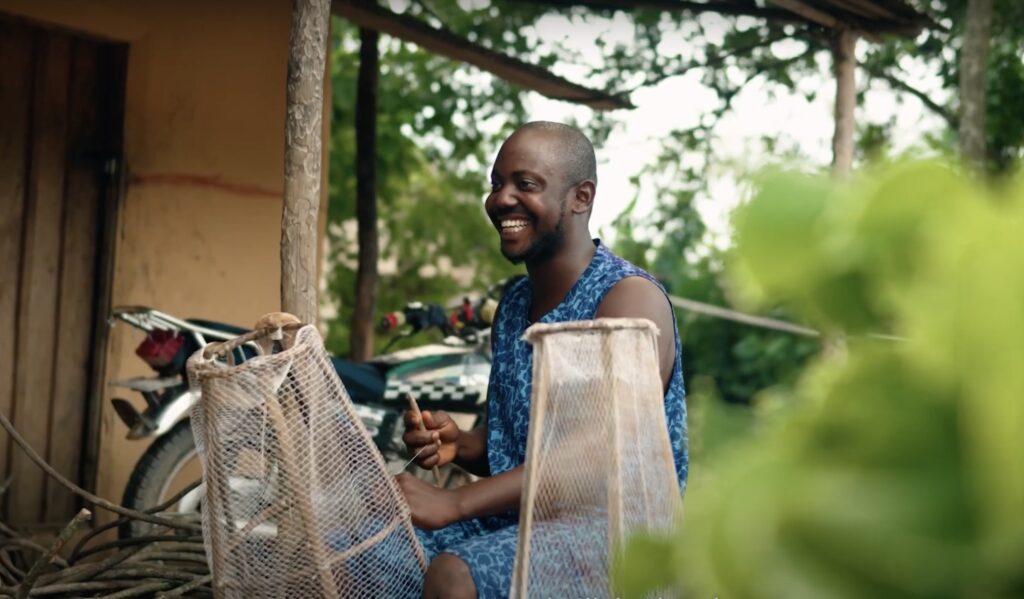
“If you visit communities where we’ve worked, at night, you won’t hear any generator noise,” Zubair said. This, for him, is the greatest win: reducing noise pollution, phasing out expensive diesel generators, improving the health of communities, and cutting carbon emissions.
By virtue of the power supply, Emmanuel Job, a fisherman in Mbiabet Ikot Esieyere community (in Akwa Ibom state) is grateful. He no longer spends about his entire day’s profit to buy diesel for his generator. He is also now able to stay up late into the night sorting his catch and mending his nets for the next day.
Scaling Impact in Nigeria and Beyond
RMI Managing Director for the Global South, Ije Okeke, was born in the United States, but moved to Nigeria and lived there during her formative years as a child before returning to the United States. Earlier this year she visited Nigeria with RMI CEO Jon Creyts.
Stepping off the plane in Nigeria, I felt like I was coming home. Though I now live in the US, I miss the energy and buzz of the country. There’s a unique warmth and resilience from the Nigerian people that I don’t experience anywhere else.” This trip, however, was not just to reconnect with family and old friends. She traveled to Nigeria to meet with the team and partners to discuss how to support and grow RMI’s work in the region. As one of the managing directors of RMI’s Global South program, she co-leads RMI’s programs in the Caribbean, South East Asia, and Africa.
Key milestones of the trip included the signing of the memorandum of understanding with the Nigeria Sovereign Investment Authority, Nigeria’s Sovereign Wealth Fund to collaborate to unlock a pipeline of bankable renewable energy projects in the country; and meeting with the richest man on the continent, Alike Dangote of Dangote Industries Limited, to discuss supporting to Dangote Industries on their ambitious sustainability goals, including reducing emissions in their large truck fleet, turning waste products from their agricultural processing facilities into biofuel, incorporating renewable energy into their businesses, and more.
RMI’s Ije Okeke (second from left) with RMI CEO Jon Creyts (left) signing the the memorandum of understanding with the Nigeria Sovereign Investment Authority.
Supporting the economic lifeblood of rural Nigeria
While having electricity is good, what matters most is what the electricity is being used for — the productive use of energy. “Where there is no energy demand,” says RMI Senior Associate Habiba Daggash, “energy infrastructure fails.”
It’s a chicken-and-egg problem that RMI helped solve. After deploying solar minigrids to communities, RMI recognized that these rural dwellers were not using much of the electricity. This was because they did not have the buying power and most of their economic activities were not dependent on power. Daggash said this is an issue in many rural development projects because there is “a huge focus on energy supply,” rather than on how these communities use energy.
Since much of Nigeria’s economy still revolves around agriculture and most of this happens in these rural communities, RMI first looked for opportunities to use minigrid power in agriculture. An initial study found immediate opportunities to put electricity to work in agricultural processing and cold storage. However, energy and agriculture stakeholders needed to work together to ensure local farmers could access the machines — grinders, mills, graters, fridges — that translate an electricity connection into a better livelihood.
The Energizing Agriculture Programme (EAP) was launched to address that need. EAP brought energy and agriculture companies together, found opportunities of shared interest, and paired them to deploy 269 electric mills, freezers, electric vehicles, and other agricultural equipment across five value chains in 17 minigrid communities.
“The EAP tried to replicate the approach of providing machinery that helps add value across different value chains, and we made sure that whatever equipment that we’re providing can use solar that’s already present in those communities,” Daggash said.
In three years, these companies formed partnerships and tested the viability of new business models in cold storage, electric mobility, electric motor retrofits, oil palm processing, and rice milling.
One such partnership between cold chain start-up Coldbox Store and Husk Power is powering a three-ton walk-in cold room that extends the shelf life of fish and other farm produce from days to months.
Reducing carbon emissions from industry
RMI is not stopping at powering communities. Alberto Rodríguez, RMI’s Africa energy program manager, says the organization is also looking to big businesses — “industries, manufacturers who consume maybe 600 to 1,000 times more electricity than households, and small and medium enterprises,” Rodríguez said.
For lack of better alternatives, these businesses — whose production processes historically rely on steady, stable power — have relied mostly on high-emitting diesel generators.
To cater to this group, RMI deployed a commercial and industrial minigrid model, which brings together a large corporation, a utility, and a developer in a three-way agreement to encourage the adoption of clean energy. This model not only helps the big business owner save up to 25 percent on energy costs by displacing existing diesel and gas generators but also reduces carbon pollution by about 33 million tons per year (approximately 8 percent of Nigeria’s total 2022 emissions).
These benefits, especially the savings on energy costs, is one Mohamed Akar, director and general manager of the Abuja-based furniture manufacturer, The Wood Factory, is happy he will begin to enjoy in the near future. With an estimated savings of 44 percent on energy costs and an annual 76 percent reduction in carbon emissions, his business’ energy security is guaranteed.
“For many years, we’ve only operated on diesel generators, which is hardly sustainable or affordable. We believe that the future of our business has become brighter with this new partnership,” Akar said after signing an agreement with Daystar Power and Abuja Electricity Distribution Co. (AEDC) in January. This agreement will enable the installation of a hybrid solar energy and grid-connected power system made up of a 594 kilowatt (kW) solar plant and a battery system able to store 600 kW-hours of power.
This hybrid solar solution installed by Daystar Power will power The Wood Factory’s operations during peak daytime hours, from 9 a.m. to 3 p.m., while AEDC will guarantee power supply for the 18 hours outside peak solar generation. This will ensure uninterrupted factory operations and thus warrant higher tariffs and revenue for all parties involved — a scenario Rodriguez describes as “win, win, win.”
Empowering the people behind the transition
Of course, none of these projects would be possible without the people who do the work. That is why RMI’s Energy Transition Academy (ETA) is helping to fill some of the technical skill gaps and empowering local people to do the jobs necessary to make these projects successful. The ETA’s first Nigerian cohort launched in 2022 and brought together 20 professionals representing four Nigerian utility companies actively working to advance clean energy projects.
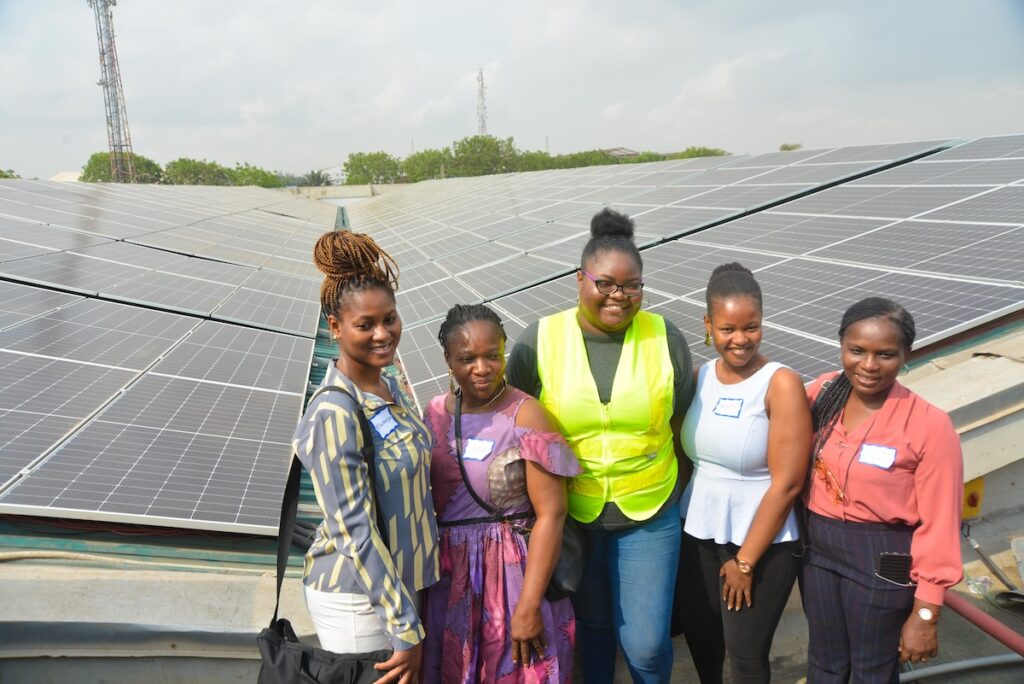
The program combines online learning with leadership development opportunities, capstone project development, and site visits. It provides knowledge and know-how for developing and implementing utility-scale solar PV, battery storage, and microgrid projects. According to RMI ETA Principal Amber Zirnhelt, “By working with the people who are advancing the energy transition, we can really scale the initiatives and the projects that are happening [in communities] much quicker.”
The participants had never met in person or had the opportunity to come together and talk about distributed energy resource project development. “Facilitating that was a huge opportunity to bring professionals together to share resources,” Zirnhelt adds.
Meet RMI’s Nigeria Program Director: Suleiman Babamanu
Suleiman Babamanu grew up in Lagos, Nigeria, Africa’s largest country by population and also the continent’s largest producer of oil and gas. So from an early age, Babamanu was interested in working in the oil and gas industry. He got a degree in applied geology and had a dream of becoming a petroleum geoscientist.
After graduating from university, Babamanu worked as a trainee geoscientist with the Nigerian National Petroleum Corporation (NNPC). He had planned on getting an advanced degree in petroleum geoscience but it was at the time when the world was starting to think about alternatives to fossil fuels. He realized that Nigeria could start using some its other abundant resources besides oil and gas. So he decided to switch directions, and he applied for and received a scholarship to study renewable energy enterprise and management at Newcastle University in England.
When he came back to Nigeria he started thinking about the situation in the country around energy access. Nigeria’s energy demand far exceeds its supply, leaving more than 100 million people with power for only a few hours each day. And 85 million people in Nigeria have no access to electricity at all. So in 2017, Babamanu started working with Nigeria’s Rural Electrification Agency (REA) to help provide rural Nigerians with access to electricity.
That was around the same time that RMI started working with the REA to commercialize and improve minigrids in Nigeria. “At that time, I never thought I would eventually join the RMI team, but I really respected the expertise and depth of knowledge that the team had,” he explains. “We were looking at the economics of minigrids, how to ensure we were selecting the right sites, and how to scale them up. It was a very useful learning experience for me engaging with the RMI team.”
A few years later, RMI was looking for a program director for the Africa work, and Babamanu was a perfect fit. “It was at a time when I felt like I needed to make a change in my career.”
I wanted to join a global organization and really look at the energy transition more holistically.” So in 2022, Babamanu became RMI’s first Africa program director. About his role at RMI, he says, “The potential for energy to transform lives is something that I wake up every morning excited to be part of.”
 RMI’s Suleiman Babamanu (photo credit TNF Media)
RMI’s Suleiman Babamanu (photo credit TNF Media)
A rewarding journey
From connecting communities to empowering their livelihoods and ensuring sustainable businesses, RMI is touching lives in Nigeria. The team says they find this very fulfilling.
Daggash saw the income of these community members increase by 20 times. To her, the impact is amazing, and she wants nothing more than to see this success scale massively and reach more people.
“For me, creating positive change is more than enough reward. It’s very rare to do work that makes you feel good and that is why I chose this job. I can see the difference that the work I do makes on people’s lives,” Daggash said.
Likewise, seeing communities light up as a result of the projects that Zubair has worked on makes him “feel very fulfilled,” and the success stories keep him motivated.
Meng said she is happy to be part of an organization that pioneers projects that are making a difference. “How many chances do you get in life to say, ‘I am the first to do this.’ That’s a really rewarding experience. And there are moments that I could proudly say that if it weren’t for RMI, this won’t happen,” Meng bragged.
While the team still has a lot of ground to cover, Babamanu said he is satisfied that RMI’s work is improving the livelihoods of people in Nigeria. “The dream is to collectively make a significant contribution to the energy transition of the country.”
Click here for a timeline of RMI milestones in Nigeria.
RMI would like to thank the Global Energy Alliance for People and Planet, UK Partnering for Accelerated Climate Transitions, Dutch Postcode Lottery, and the United States Trade and Development Agency for their generous funding to make our work in Nigeria possible.
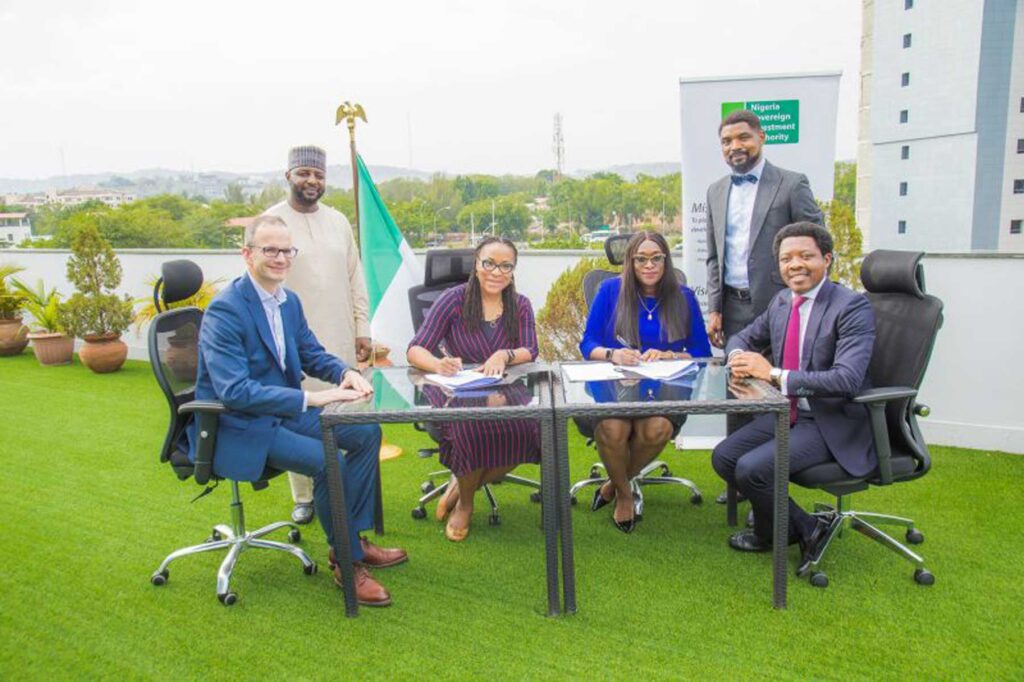
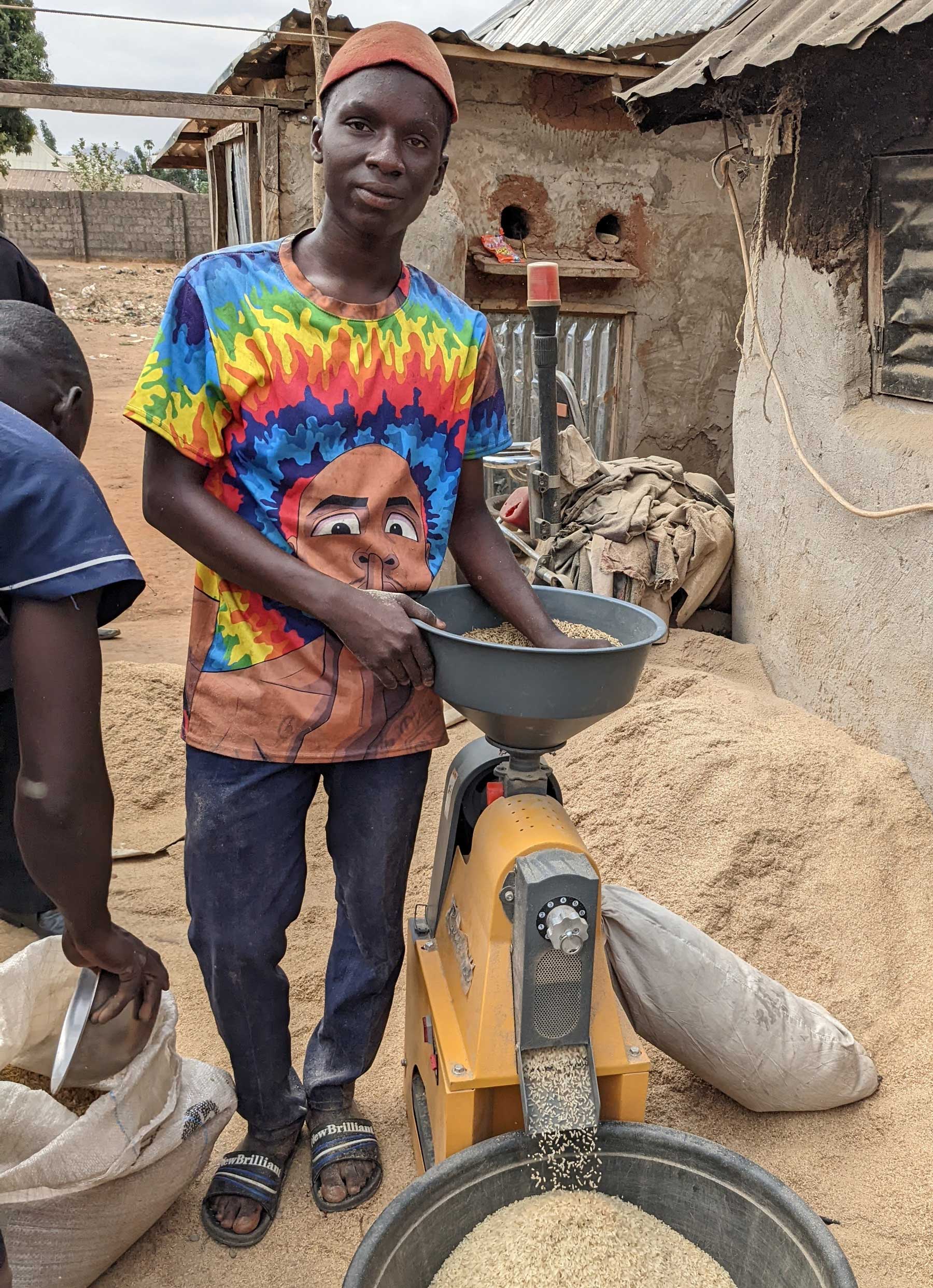 EAP electric rice mill
EAP electric rice mill